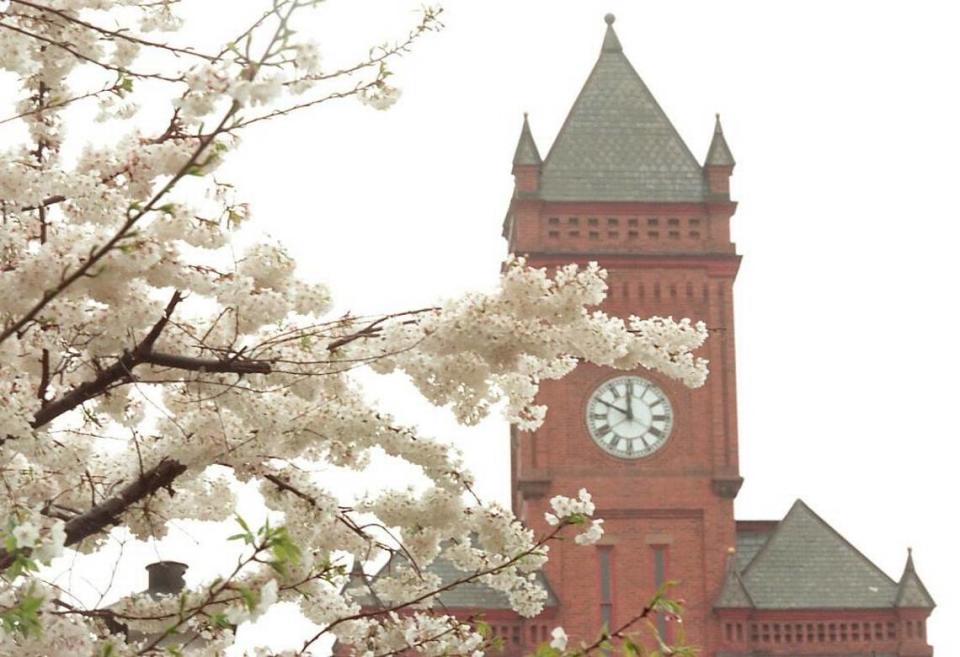Nearly 19,000 PPP loans went to Mecklenburg businesses amid COVID. Here’s what we found
Employers ranging from the U.S. National Whitewater Center to the Catholic Diocese of Charlotte were among the groups that got almost 19,000 Paycheck Protection Program loans in Mecklenburg County, according to data released Monday by the U.S. Small Business Administration.
The loans were created as a lifeline to help small businesses during the novel coronavirus pandemic as shutdowns began in March. The loans saved about 198,000 jobs for Mecklenburg County businesses, an analysis of the data show.
While some businesses have reopened in North Carolina, like retail, restaurants and personal services, others still remain closed, including movie theaters, gyms and bars because of Gov. Roy Cooper’s safer-at-home order.
The SBA guaranteed nearly 16,000 loans of up to $150,000 to Mecklenburg County businesses since the beginning of April.
In all, the SBA guaranteed around 122,000 loans to North Carolina businesses.
Information about recipients of PPP loans for less than $150,000 does not include company names. It lists ZIP code, industry and number of jobs retained. Another 2,780 loans of more than $150,000 were secured, data show.
Big loans
Although the data does not show the specific amount of those larger loans, about 330 were for more than $1 million — including 23 worth between $5 million and $10 million.
Those biggest loans went to Johnson C. Smith University, OrthoCarolina, Tryon Medical Partners and Parker, Poe, Adams and Bernstein LLC law firm, to name a few, according to the SBA records.
In a statement, JCSU Chief Financial Officer Greg Petzke said the school used the loan to help with payroll for April, May and June.

Petzke refused to say how much money the school received but said the amount was equivalent to two and a half times the school’s average monthly payroll.
“Unfortunately, the COVID-19 pandemic created uncertainty for enrollment at institutions of higher education across the nation, especially ones like JCSU, which is tuition driven,” Petzke said. “The PPP allowed us to keep our funds for payroll this fall in case enrollment drops significantly due to the pandemic.”
Elevation Church was one of over 50 local churches to receive a loan of more than $150,000, data show. Elevation received between $2 million and $5 million. The Whitewater Center received a loan between $1 million and $2 million, records show.
Officials with Elevation Church, U.S. Whitewater Center and OrthoCarolina could not immediately be reached for comment Monday.
Although Charlotte-based Bojangles with almost 750 locations, is listed as a recipient of $5 million to $10 million on the SBA list, company spokesman Brian Little said Monday the fast-food chain didn’t accept the funding.
“During the initial days after the launch of the PPP Loan program, we applied for and were approved for a PPP Loan. However, we ultimately decided not to proceed with the loan and did not receive a PPP loan,” he said. “I understand that we were included in a published list of PPP Loan recipients. However, I’m not sure why we would have been included, since we never signed loan documents.”
CNBC reported Monday evening that several companies listed in the SBA’s database said they did not apply for or obtain the PPP funds they are listed as receiving.
Other recipients
Some other local businesses, according to the data, that received loans of $350,000 to $1 million include Hyatt Gun Shop, Blackhawk Hardware and Charlotte-based Lebo’s, a western retail store with eight locations in the Carolinas.
Restaurants and breweries in the $150,000 to $350,000 loan range include Dressler’s, Midwood Smokehouse, Lebowski’s Neighborhood Grill, 131 Main, Legion Brewing Co. and Wooden Robot Brewery, according to records.
Others include Sycamore Brewing at $350,000 to $1 million and Old Mecklenburg Brewery at $1 million to $2 million, records show.
Companies in construction, health care and other industries were also given large loans, along with churches and nonprofits. The Foundation for the Carolinas received between $2 and $5 million, as did Forest Hill Church. The Roman Catholic Diocese of Charlotte received between $1 million and $2 million, records show.
Tryon Medical Partners’ PPP loan was between $5 million and $10 million, according to the data, while Aldersgate United Methodist Retirement Community received a loan for $2 million to $5 million.
The Charlotte Ballet was loaned between $350,000 and $1 million through the program, records show.
Elsewhere around the region, some PPP recipients and their loan ranges included: Lincolnton Animal Hospital, $150,000-$350,000; Beverly Knits Inc. in Gastonia, $2 million-$5 million; Gaston Family Health Services in Gastonia, $5 million-$10 million; Monroe Hardware Company, $1 million-$2 million; and in Concord, Chip Ganassi Racing With Felix Sabates, and Roush Fenway Racing, each with $2 million-$5 million, records show.
Criticism of the program
Companies with less than 500 workers per location may apply for the loan program, run by the SBA. The low-interest loan can be used to pay for payroll and expenses. The loan is forgiven if the company keeps workers and doesn’t cut pay.
The program, and the banks administering the loans, has been sharply criticized, as small businesses struggled initially to get in line for the funds amid a wave of applicants.
In a series of class-action lawsuits filed in California and New York, Wells Fargo, Bank of America and other lenders were accused of sending bigger loans to the SBA before smaller ones.
The Observer has reported that several of the banks disagree with the claims or said they had no merit, while others declined to comment.

